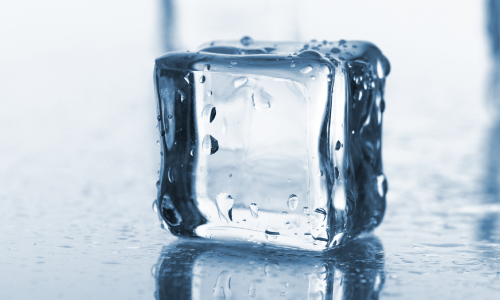In Ayurveda, there are certain cold practices that should be avoided because they can have negative effects on the body and disrupt the balance of the Doshas or biophysical energies energies, that govern our health. In this blog, we will explore two cold practices that you should never do according to Ayurveda. Drinking cold water Drinking cold water is a common practice in many cultures, especially during hot weather or after exercise. However, Ayurveda advises against drinking cold water, particularly with meals or on an empty stomach. Here’s why: Affects digestion According to Ayurveda, the digestive fire, or Agni, is responsible for breaking down food and extracting nutrients from it. When you drink cold water, it can extinguish the digestive fire and slow down digestion. This can lead to indigestion, bloating and other digestive issues. Affects blood circulation Consuming cold water might also impair blood circulation. The blood vessels in the digestive tract contract when you drink cold water, which might hinder the absorption of nutrients. Moreover, this may cause the body to shift blood away from the digestive system, impairing nutrient absorption and digestion. Disrupts balance of Doshas Ayurveda believes that the body is governed by three Doshas – Vata, Pitta and Kapha – and that they need to be in balance for good health. Drinking cold water can imbalance the Pitta Dosha, which governs digestion, metabolism and body temperature regulation. This can lead to an increase in Pitta, resulting in digestive problems, inflammation and other health issues. Doing cold compress People commonly use cold compresses, also known as ice packs, to reduce swelling, inflammation, and pain in injuries and other health conditions. However, Ayurveda recommends avoiding cold compresses because they can disrupt the natural flow of energy or “Prana” in the body, which can lead to imbalances and health problems. According to Ayurveda, the three Doshas (or energies) that make up the body are Vata, Pitta and Kapha. Because each of the Doshas has unique characteristics, an imbalance in any one of them can create health issues. Cold compresses are supposed to exacerbate the Vata Dosha, which controls movement and circulation in the body. The blood arteries constrict when you use a cold compress, decreasing blood flow to the injured area. While this could temporarily reduce discomfort and edema, it might also obstruct the body’s normal energy flow. This disruption is seen undesirable by Ayurveda since it may result in subsequent Vata Dosha imbalances. Furthermore, cold compresses can also increase the Kapha Dosha, which is responsible for stability and lubrication in the body. Cold compresses can cause excess moisture and dampness, which can worsen Kapha imbalances and lead to congestion and stagnation in the affected area. Ayurveda recommends using warm compresses instead of cold compresses. People believe that warm compresses soothe the affected area and improve circulation without disrupting the natural flow of energy in the body. They can also help balance the Vata Dosha by providing warmth and stability. If you are struggling with any health issues, you can either book a consultation with us or send us a message via WhatsApp to +91 79074 89839. We have the best Ayurvedic doctors in Trivandrum who are always glad to help you. If you have any queries, contact us. You can also visit us at our hospital.
Two cold practices you should never do according to Ayurveda
